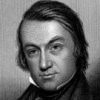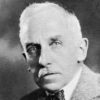Nothing flourishes for ever; each generation gives place to its successor.
[Nihil enim semper floret; aetas succedit aetati.]
Marcus Tullius Cicero (106-43 BC) Roman orator, statesman, philosopher
Philippics [Philippicae; Antonian Orations], No. 11, ch. 15 / sec. 39 (11.15/11.39) (43-02 BC) [ed. Harbottle (1897)]
(Source)
(Source (Latin)). Other translations:For there is nothing which flourishes for ever. Age succeeds age.
[tr. Yonge (1903)]For nothing is for ever flourishing; age succeeds to age.
[tr. Ker (Loeb) (1926)]
Quotations about:
era
Note not all quotations have been tagged, so Search may find additional quotes on this topic.
Every age has its peculiar folly; some scheme, project, or phantasy into which it plunges, spurred on either by the love of gain, the necessity of excitement, or the mere force of imitation. Failing in these, it has some madness, to which it is goaded by political or religious causes, or both combined.
Charles Mackay (1814-1889) Scottish poet, journalist, song writer
Memoirs of Extraordinary Popular Delusions and the Madness of Crowds, “The Crusades” (1841)
(Source)
Happy that nation, fortunate that age, whose history is not diverting.
Benjamin Franklin (1706-1790) American statesman, scientist, philosopher, aphorist
Poor Richard (1740 ed.)
(Source)
Whoso belongs only to his own age, and reverences only its gilt Popinjays or smoot-smeared Mumbojumbos, must needs die with it.
Thomas Carlyle (1795-1881) Scottish essayist and historian
Essay (1832-05) “Boswell’s Life of Johnson,” Fraser’s Magazine, Vol. 5, No. 28
(Source)
Reviewing James Boswell The Life of Samuel Johnson, LL.D.; including a Tour to the Hebrides (1831 ed.). Collected in Critical and Miscellaneous Essays (1827-1855)
Horace and Aristotle already told us about the virtues of their forefathers and the vices of their times, and authors down through the centuries have spoken in like manner. If they had told the truth, men would nowadays be bears.
[Horace et Aristote nous ont déjà parlé des vertus de leurs pères, et des vices de leur temps, et les auteurs de siècle en siècle nous en ont parlé de même. S’ils avaient dit vrai, les hommes seraient à présent des ours.]Charles-Lewis de Secondat, Baron de Montesquieu (1689-1755) French political philosopher
Pensées Diverses [Assorted Thoughts], # 396 (1720-1755) [tr. Clark (2012)]
(Source)
(Source (French)). Alternate translation:Horace and Aristotle told us of the virtues of their fathers, and the vices of their own time, and authors down through the centuries have told us the same. If they were right, men would now be bears.
[E.g.]
The one thing that unifies men in a given age is not their individual philosophies but the dominant problem that these philosophies are designed to solve.
Jacques Barzun (1907-2012) French-American historian, educator, polymath
Romanticism and the Modern Ego, ch. 1 (1943)
(Source)
But in the days that are now passing over us, even fools are arrested to ask the meaning of them; few of the generations of men have seen more impressive days. Days of endless calamity, disruption, dislocation, confusion worse confounded: if they are not days of endless hope too, then they are days of utter despair. For it is not a small hope that will suffice, the ruin being clearly, either in action or in prospect, universal. There must be a new world, if there is to be any world at all!
Thomas Carlyle (1795-1881) Scottish essayist and historian
Essay (1850-02-01), “The Present Time,” Latter-Day Pamphlets, No. 1
(Source)
To found the reward for virtuous actions on the approval of others is to choose too uncertain and shaky a foundation. Especially in an age as corrupt and ignorant as this, the good opinion of the people is a dishonor. Whom can you trust to see what is praiseworthy?
[De fonder la recompence des actions vertueuses, sur l’approbation d’autruy, c’est prendre un trop incertain et trouble fondement, signamment en un siecle corrompu et ignorant, comme cettuy cy la bonne estime du peuple est injurieuse. A qui vous fiez vous, de veoir ce qui est louable?]Michel de Montaigne (1533-1592) French essayist
Essays, Book 3, ch. 2 (3.2), “Of Repentance [Du Repentir]” (1586) [tr. Frame (1943)]
(Source)
This essay first appeared in the 1588 ed. The second sentence/phrase (on the age being so corrupt) and following were added for the 1595 ed.
(Source (French)). Alternate translations:To ground the recompence of vertuous actions, upon the approbation of others, is to undertake a most uncertaine or troubled foundation, namely in an age so corrupt and times so ignorant, as this is: the vulgar peoples good opinion is injurious. Whom trust you in seeing what is commendable?
[tr. Florio (1603)]To ground the Recompence of virtuous Actions upon the Approbation of others, is too uncertain and unsafe a Foundation; especially in so corrupt and ignorant an Age as this, the good Opinion of the Vulgar is injurious. Upon whom do you relie to shew you what is recommendable?
[tr. Cotton (1686)]To ground the recompense of virtuous actions upon the approbation of others is too uncertain and unsafe a foundation, especially in so corrupt and ignorant an age as this, wherein the good opinion of the vulgar is injurious: upon whom do you rely to show you what is recommendable?
[tr. Cotton/Hazlitt (1877)]To base the reward of virtuous actions on the approbation of others is to choose a too uncertain and obscure foundation. Especially in a corrupt and ignorant age like this, the good opinion of the vulgar is offensive; to whom do you trust to perceive what is praiseworthy?
[tr. Ives (1925)]Basing the recompense of virtuous deeds on another’s approbation is to accept too uncertain and confused a foundation -- especially since in a corrupt and ignorant period like our own to be in good esteem with the masses is an insult: whom would you trust to recognize what was worthy of praise!
[tr. Screech (1987)]
O the times! O the manners!
[O tempora, o mores!]
Marcus Tullius Cicero (106-43 BC) Roman orator, statesman, philosopher
Orationes in Catilinam [Catilinarian Orations], No. 1, § 1, cl. 2 (1.1.2) (63-11-08 BC) [tr. Mongan (1879)]
(Source)
(Source (Latin)). Alternate translations:Oh what times! what a world do we live in!
[tr. Wase (1671)]But O degenerate times!
[tr. Sydney (1795)]Shame on the age and on its principles!
[tr. Yonge (1856)]O the times! O the manners.
[tr. Underwood (1885)]O times! O manners!
[tr. Dewey (1916)]What a scandalous commentary on our age and its standards!
[tr. Grant (1960)]O what times (we live in)! O what customs (we pursue)!
[IB Notes]What times! What morals!
[Source]
Ours is the crowning era foretold in prophecy;
Born of Time, a great new cycle of centuries
Begins. Justice returns to earth, the Golden Age
Returns, and its first-born comes down from heaven above.
Look kindly, chaste Lucina, upon this infant’s birth,
For with him shall hearts of iron cease, and hearts of gold
Inherit the whole earth — yes, Apollo reigns now.
[Ultima Cumaei venit iam carminis aetas;
magnus ab integro saeclorum nascitur ordo:
iam redit et Virgo, redeunt Saturnia regna;
iam nova progenies caelo demittitur alto.
Tu modo nascenti puero, quo ferrea primum
desinet ac toto surget gens aurea mundo,
casta fave Lucina: tuus iam regnat Apollo.]Virgil (70-19 BC) Roman poet [b. Publius Vergilius Maro; also Vergil]
Eclogues [Eclogae, Bucolics, Pastorals], No. 4 “Pollio,” l. 5ff (4.5-11) (42-38 BC) [tr. Day Lewis (1963)]
(Source)
Celebrating the birth of Saloninus, a boy born in the consulship of his father and Virgil's patron C. Asinius Pollio. Or, possibly, writing of Marcellus, son of Augustus. Or maybe just a lot of veiled references to Augustus himself. Or, say some, divine prophecy of the future Jesus Christ. Lots of theories; some summaries here and here.
References in the various translations are to (a) the prophetic Sybil of Cumae (near Naples); (b) the virgin goddess of Justice, Astraea, who left the world after the first Golden Age to become the constellation Virgo; (c) the goddess of birth, Lucina, who is also identified with Diana, the sister of Apollo.
(Source (Latin)). Alternate translations:And times great order now again is borne,
The maid returns, Saturnian Realms returne:
Now from high Heaven springs a new Progenie.
To th' infant chaste Lucina favouring be,
Who ending iron ages, through all Lands
Shall golden plant: thy Phoebus now commands.
[tr. Ogilby (1649)]The last great Age, foretold by sacred Rhymes,
Renews its finish'd Course, Saturnian times
Roll round again, and mighty years, begun
From their first Orb, in radiant Circles run.
The base degenerate Iron offspring ends;
A golden Progeny from Heav'n descends.
O chaste Lucina speed the Mother's pains,
And haste the glorious Birth; thy own Apollo reigns!
[tr. Dryden (1709)]Comes the last age, by Cumæ's maid foretold:
'Afresh the mighty line of years unroll'd,
The Virgin now, now Saturn's sway returns;
Now the blest globe a heaven-sprung Child adorns,
Whose genial power shall whelm earth's iron race,
And plant once more the golden in its place.
Thou, chaste Lucina, but that child sustain:
And, lo! disclosed thine own Apollo's reign!
[tr. Wrangham (1830)]The last era, of Cumæan song, is now arrived: The great series of ages begins anew. Now, too, returns the virgin Astræa, returns the reign of Saturn; now a new progeny is sent down from high heaven. Be thou but propitious to the infant boy, under whom first the iron age shall cease, and the golden age overall the world arise, O chaste Lucina; now thy own Apollo reigns.
[tr. Davidson (1854)]Come are those last days that the Sybil sang:
The ages' mighty march begins anew.
Now comes the virgin, Saturn reigns again:
Now from high heaven descends a wondrous race.
Thou on the newborn babe -- who first shall end
That age of iron, bid a golden dawn
Upon the broad world -- Lucina, smile:
Now thy Apollo reigns.
[tr. Calverley (c. 1871)]The last æra of Sibylline prophecy has come at last; a mighty cycle of ages is being born afresh. At length the maiden Astraea is returning; the happy reign of Saturn is returning; now a new and better race is descending from the realms on high. Do thou only, chaste Lucina, smile on the birth of the boy, under whose auspices the iron brood shall first begin to fail, and a golden race shall rise throughout the world: thine own Apollo is now on his throne.
[tr. Wilkins (1873)]See the last era of prophetic voice!
The world and its inhabitants rejoice.
With a fair offspring of celestial birth,
The reign of innocence returns to earth.
Apollo, fulgent god of beauteous dawn,
And chaste Diana, bless the glorious morn.
The iron age retires; the boy is born.
[tr. King (1882), l. 267ff]At last they dawn; those latter days, so long
Prefigured in the old Cumæan song:
Fresh as the dew of earth's primeval morn,
Of this great series the first age is born:
The lost Astraea greeting us again,
The olive, and the just Saturnian reign:
Already the first fruit is largely given,
And a new progeny descends from heaven,
The links of iron ages to destroy,
(Thou, virgin ever helpful, speed the boy)
And with a golden race to fill the way
From Nile to Thule: give him to the day,
Purest Lucina: circling time explains
The Sibyl, and thy own Apollo reigns.
[tr. Palmer (1883)]Now the last age by Cumæ's Sibyl sung
has come and gone, and the majestic roll
of circling centuries begins anew:
justice returns, returns old Saturn's reign,
with a new breed of men sent down from heaven.
Only do thou, at the boy's birth in whom
the iron shall cease, the golden race arise,
befriend him, chaste Lucina; 'tis thine own
Apollo reigns.
[tr. Greenough (1895)]The last era of Cumæan song, has now arrived: The great series of ages begins anew. Now, too, returns the virgin Astræa, the reign of Saturn returns; now a new race of men is being sent down from high heaven. And in a special degree, O chaste Lucina, be but propitious to the infant boy, under whom first the iron age shall cease, and the golden age arise over all the world; now your own brother Apollo reigns.
[tr. Bryce (1897)]Now is come the last age of the Cumæan prophecy: the great cycle of periods is born anew. Now returns the Maid, returns the reign of Saturn: now from high heaven a new generation comes down. Yet do thou at that boy's birth, in whom the iron race shall begin to cease, and the golden to arise over all the world, holy Lucina, be gracious; now thine own Apollo reigns.
[tr. Mackail (1899)]Now dawns the last age of Cumæan song!
Once more the circling centuries begin --
The Virgin reappears and Saturn reigns:
From heav'n descends a novel progeny;
Now to this child in whom the iron race
Throughout the world shall cease and turn to gold,
Extend thy aid, Lucina, chaste and kind,
For thy Apollo reigns.
[tr. Mackail/Cardew (1908)]Now come the world's last days, the age foretold
By Cumae's prophetess in sacred song.
The vast world-process brings a new-born time.
Once more the Virgin comes and Saturn's reign.
Behold a heaven-born offspring earthward hies! Holy Lucina, lend thy light and aid
The while this child is born before whose power
The iron race of mortals shall away,
And o'er this earth a golden people reign.
For blest Apollo is at last their king.
[tr. Williams (1915)]Now is come the last age of Cumaean song; the great line of the centuries begins anew. Now the Virgin returns, the reign of Saturn returns; now a new generation descends from heaven on high. Only do you, pure Lucina, smile on the birth of the child, under whom the iron brood shall at last cease and a golden race spring up throughout the world! Your own Apollo now is king!
[tr. Fairclough (Loeb) (1916)]The last age told by Cumae's seer is come,
A might roll of generations new
Is now arising. Justice now returns
And Saturn's realm, and from high heaven descends
A worthier race of men. Only do thou
Smile, chaste Lucina, on the infant boy,
With whom the iron age will pass away,
The golden age in all the earth be born;
For thine Apollo reigns.
[tr. Royds (1922)]We have reached the last era in Sibylline song. Time has conceived and the great Sequence of the Ages starts afresh. Justice, the Virgin, comes back to dwell with us, and the rule of Saturn is restored. The Firstborn of the New Age is already on his way from high heaven down to earth. With him, the Iron Race shall end and Golden Man inherit all the world. Smile on the Baby's birth, immaculate Lucina; your own Apollo is enthroned.
[tr. Rieu (1949)]At last approaches that era the Sibyl foreshadowed,
The centuries flower afresh in a great world-order,
Justice, the Virgin, returns, and the peace of Saturn;
Already the new race ventures from heights of heaven.
All that we ask, immaculate Mother of childbirth,
Is your smile on the baby born, who finally cancels
The breed of iron and fosters the golden-hearted
Throughout the world: your own Light-giver has triumphed!
[tr. Johnson (1960)]The last great age the Sybil told has come;
The new order of centuries is born;
The Virgin now returns; and the reign of Saturn;
The new generation now comes down from heaven.
Lucina, look with favor on this child,
-- Lucina, goddess, pure -- this child by whom
The Age of Iron gives way to the Golden Age.
Now is the time of your Apollo's reign.
[tr. Ferry (1999)]Now the last age of the Cumaean prophecy begins:
the great roll-call of the centuries is born anew:
now Virgin Justice returns, and Saturn’s reign:
now a new race descends from the heavens above.
Only favour the child who’s born, pure Lucina, under whom
the first race of iron shall end, and a golden race
rise up throughout the world: now your Apollo reigns.
[tr. Kline (2001)]
Looking back, you can usually find the moment of the birth of new era, whereas, when it happened, it was one day hooked on the tail of another.
The greatest men are connected with their own century always through some weakness.
[Die größten Menschen hängen immer mit ihrem Jahrhundert durch eine Schwachheit zuammen.]
Johann Wolfgang von Goethe (1749-1832) German poet, statesman, scientist
Elective Affinities [Die Wahlverwandtschaften], Part 2, ch. 5, “From Ottilie’s Journal [Aus Ottiliens Tagebuche]” (1809) [Niles ed. (1872)]
(Source)
(Source (German)). Alternate translation:The greatest human beings are always linked to their century by some weakness.
[tr. Hollingdale (1971)]
It is impossible to divide the past into distinct, clearly defined periods and prove that one age ended and another began in a particular year, such as 476, or 1453, or 1789. Men do not and cannot change their habits and ways of doing things all at once, no matter what happens.
James Harvey Robinson (1863-1936) American historian and educator
An Introduction to the History of Western Europe, ch. 1 “The Historical Point of View” (1902)
(Source)
The certainties of one age are the problems of the next.
R. H. Tawney (1880-1962) English writer, economist, historian, social critic [Richard Henry Tawney]
Religion and the Rise of Capitalism, ch. 5 (1926)
(Source)
How many a man has dated a new era in his life from the reading of a book.
Henry David Thoreau (1817-1862) American philosopher and writer
Walden; or, Life in the Woods, ch. 3 “Reading” (1854)
(Source)
The word Martini is a nostalgic passport to another era — when automobiles had curves like Mae West, when women were either ladies or dames, when men wore hats, when a deal was done on a handshake, when boxing and polo were regular pastimes, when we lived for movies instead of MTV, and when jazz was going from hot to cool. It was a time when a relationship was called either a romance or an affair, when love over a pitcher of Martinis was bigger than both of us, sweetheart, and it wouldn’t matter if the Russians dropped the bomb as long as the gin was wet and the vermouth was dry. That as Martini Culture.
Barnaby Conrad III (b. 1952) American author, artist, editor
The Martini: An Illustrated History of an American Classic, “The Great Martini Revival” (1995)
(Source)
Conrad reworked the passage in "Martini Madness" in Cigar Afficionado (Spring 1996):The Martini is a cocktail distilled from the wink of a platinum blonde, the sweat of a polo horse, the blast of an ocean liner's horn, the Chrysler building at sunset, a lost Cole Porter tune, and the aftershave of quipping detectives in natty double-breasted suits. It's a nostalgic passport to another era -- when automobiles had curves like Mae West, when women were either ladies or dames, when men were gentlemen or cads, and when a "relationship" was true romance or a steamy affair. Films were called movies then, the music was going from le jazz hot in Paris to nightclub cool in Vegas, and when a deal was done on a handshake, the wise guy who welched soon had a date with a snub-nosed thirty-eight. Love might have ended in a world war, but a kiss was still a kiss, a smile was still a smile, and until they dropped the atomic bomb there was no need to worry, schweetheart, as long as the vermouth was dry and the gin was wet. That was Martini Culture.
I have asked Mr Bernstein,
who is an excellent blesser
to bless you all and say
that in a country where Illiteracy is on the rise
and the economy is sinking low
and Chastity is out the window
it is comforting to know
that though the frost is on the pumpkin
and civilization is on the skids
you guys are ferociously working underground
smuggling books into the hands of kids.
Like it or not we live in interesting times. They are times of danger and uncertainty; but they are also more open to the creative energy of men than any other time in history. And everyone here will ultimately be judged — will ultimately judge himself — on the effort he has contributed to building a new world society and the extent to which his ideals and goals have shaped that effort.
Robert Francis Kennedy (1925-1968) American politician
“Day of Affirmation,” address, University of Capetown, South Africa (6 Jun 1966)
(Source)
We are living in the most destructive and, hence, the most stupid period of the history of our species.
Wendell Berry (b. 1934) American farmer, educator, poet, conservationist
Essay (1990), “A Poem of Difficult Hope,” What Are People For? (1990)
(Source)
Great men hallow a whole people and lift up all who live in their time.
Sydney Smith (1771-1845) English clergyman, essayist, wit
“Ireland,” The Edinburgh Review (1820-11)
(Source)
Review of Whitewlaw's History off the City of Dublin,, Curwein's Observations on the State of Ireland (1818), and Gamble's Views of Society in Ireland.
Speaking of his friend, Henry Grattan.
“I wish it need not have happened in my time,” said Frodo.
“So do I,” said Gandalf, “and so do all who live to see such times. But that is not for them to decide. All we have to decide is what to do with the time that is given us.”J.R.R. Tolkien (1892-1973) English writer, fabulist, philologist, academic [John Ronald Reuel Tolkien]
The Lord of the Rings, Vol. 1: The Fellowship of the Ring, Book 1, ch. 2 “The Shadow of the Past” (1954)
(Source)
EDGAR: Know thou this: that men
Are as the time is; to be tender-minded
Does not become a sword.William Shakespeare (1564-1616) English dramatist and poet
King Lear, Act 5, sc. 3, l. 35ff (5.3.35-37) (1606)
(Source)

























